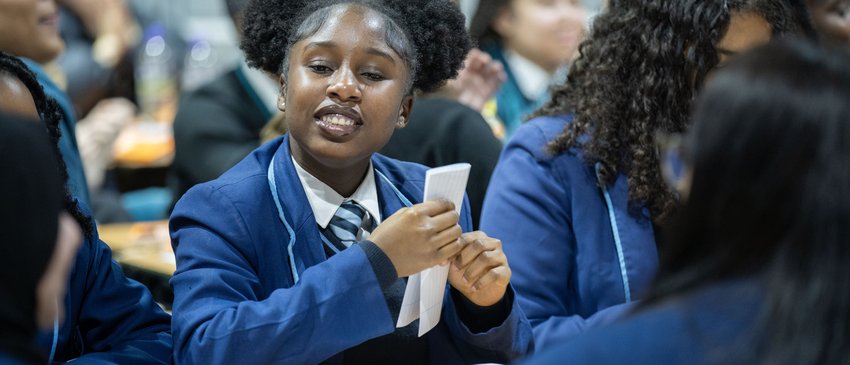Words for Work

What is Words for Work?
Words for Work supports children and young people with the oracy skills they need to thrive in the modern workplace and pursue their aspirations. Through the support of a diverse network of inspiring professionals, participants gain the confidence to practice communication in authentic, workplace contexts.
Why it matters
Oracy - speaking and listening - skills are fundamental to performing effectively in the workplace, yet they remain one of the most underdeveloped skills in young people. According to a 2019 Confederation of British Industry report, nearly half of employers (44%) say school leavers are not work-ready, with communication identified as one of the biggest gaps.
UK businesses predict that oracy skills will be vital for young people to succeed, especially as technological advancements and an increasingly AI-driven labour market continue to reshape the future of work. Addressing this skills gap is essential. The National Literacy Trust's recent paper the Future of Literacy: The human advantage explores this topic more.
About the Words for Work projects
Words for Work comprises a range of projects tailored to different age groups. A key focus is on post-16 students, young people on the cusp of employment and future pathways, helping them develop the communication skills, aspirations and self-assurance needed to take their next steps successfully.
Our Words for Work projects are bespoke initiatives supported by a range of partners and focus on:
-
Work experience
-
Internships
-
Women in Leadership
-
Careers and aspirations
Discover examples of our work
Read about some of our successful Words for Work projects from teachers and students who have shared their experiences.
-
Words for Works is tailored to help teenagers grasp some of the specific literacy skills they might need to equip them for the world of work. Tahlia recently took part in...Learn more
-
Jo Washburn, an English teacher at Bournville School in Birmingham, led our Words for Work scheme as she thought it would be a good opportunity for her students.Learn more
"Thank you for running the programme with our school. We really enjoyed it and felt that students benefitted a lot from understanding the importance of literacy and communication in the workplace."
Teacher from a Words for Work school

